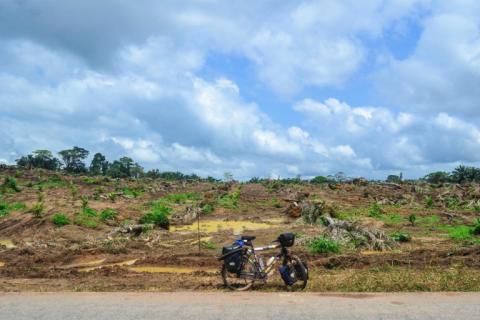
Topics and Regions
Landpages.co.ke is a medium of passing this message.
Details
Public Email
Location
Contributions
Displaying 601 - 610 of 730Land Tenure and Sustainable Agri Food Systems
The aim of this paper is to consolidate lessons from existing evidence that demonstrates the role of equitable access and tenure security to land in achieving sustainable food systems transformation, and subsequently, for the overall achievement of the SDGs. It makes the case of the importance of reforming and securing access and tenure rights to land and natural resources.
Pravni vodič za komasaciju
Land consolidation is a highly effective land management instrument that allows for the improvement of the structure of agricultural holdings and farms in a country, which increases their economic and social efficiency and brings benefits both to right holders as well as to society in general. Since land consolidation gives mobility to land ownership and other land rights, it may also facilitate the allocation of new areas with specific purposes other than agriculture, such as for public infrastructure or nature protection and restoration.
The true price of palm oil
The climate crisis is no longer projection, but reality. Forests play a key role in regulating the global climate and are critical to preventing runaway global heating. They are also a treasure trove of biological diversity, and home to many indigenous peoples and forest communities. Yet forests continue to be burned and destroyed at an alarming rate. The primary driver of deforestation is agribusiness, with palm oil a chief culprit.
Ugandan activists’ arrest slammed as threat to space for rights defenders
The recent arrests of staff of a Ugandan civil society organization, the Africa Institute for Energy Governance (AFIEGO), have been criticized as an attempt to stifle defenders of human rights and the environment in the East African country. AFIEGO has been prominent in campaigns against sugarcane plantations in the country’s western Bugoma Forest, as well as defending the rights of communities affected by Uganda’s growing oil industry.
Plantation giant Socfin accused of dodging taxes in Africa
By the OECD’s estimates, every year countries in Africa are cheated out of more than $50 billion in taxes, mainly by multinational corporations that run mines, oil wells, and plantations on the continent.
Green Advocates International, ARD, Others Launch CALLS Project
Green Advocates International (GAI), Alliance for Rural Democracy (ARD), Natural Resource Women Platform (NRWP) recently launched the Community Advocacy for Land and Livelihood Support (CALLS) project.
Launched under the theme: “Communities Defend human rights within rubber concession’ , the project will be implemented in Margibi, Bong and Grand Bassa Counties working with communities in defending human rights on rubber plantations.
Public-private Agriculture 4.0 greenhouse deal struck
The Ministry of Agriculture, Forestry and Fisheries on January 21 signed a memorandum of understanding (MoU) with three companies geared towards the production of a minimum of 400 tonnes of additional vegetables per year to supply the domestic market and ship abroad.
The signatory companies of the MoU, entitled “Agriculture 4.0 and Greenhouse Cooperation: Transforming Farmers to Agropreneurs”, were listed in a post on agriculture minister Veng Sakhon’s Facebook page as Agri-Sambathkhmer Co Ltd, PLMP Venture Capital Co Ltd and ISBP Group-Sun Business Investment Globe Co Ltd.
New dominica and land law: Major innovations brought!
The multiplicity of acts of ownership or enjoyment, the non-respect by the actors of their fields of competence, the anarchic occupation of the public domain, the insufficiency and / or inadequacy of the modes of advertising during the procedure of registration of plots of land, the slowness in the processing of land files and the difficulties of application of certain court decisions etc., are all evils that characterize state and land management in Mali.
At a ‘certified’ palm oil plantation in Nigeria, soldiers and conflict over land
When the Roundtable on Sustainable Palm Oil (RSPO) was created by a coalition of industry giants, retailers, banks, and NGOs in 2004, it was supposed to be the catalyst for a new, ethical era in palm oil production. Consumers could finally open a jar of Nutella or unroll their lipstick confident that the palm oil it contained didn’t come from a plantation that was, say, located inside of a rainforest reserve or patrolled by soldiers accused of burning local villages to the ground. The Okomu Oil Palm Company in southwestern Nigeria might give them second thoughts.




